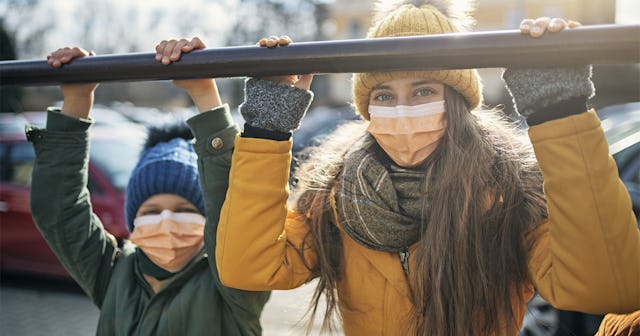Getting Through A COVID Winter

New England winters are rough for me. Each fall I brace myself for months of cold, dark days. I miss the ease of warm weather and the heat of the sun. I still get outside, but I begin to feel claustrophobic by January. The holidays usually take a toll on me too. Without creating a self-fulfilling prophecy that this winter will definitely be miserable because of the pandemic, I am very aware of the extra layers of anxiety, depression, and dread it will cause on what is already a tough season on me and so many others.
Seasonal Affective Disorder affects roughly 10 million Americans each year, which is sometimes accompanied by severe depression and addiction. Because of everything I mentioned, we need to recognize that the risk of struggle is high, and the winter looks bleak as we head indoors to ride out the season and a surge in COVID-19 cases. But with awareness comes planning and preemptive measures to stay in decent head spaces while we get through a COVID-19 winter.
I recently upped my vitamin D intake, am considering restarting a daily dose of CBD, and will continue to exercise daily to keep the stress levels low while boosting feel-good chemicals. Many of my friends swear by therapy light lamps and sunshine bulbs, so I am going to see how much those cost. And despite my moaning and groaning about it, I will make an effort to get outside each day to at least walk or run. Some of my friends have also mentioned their commitment to moving every day and their desire to buy fire pits or ceramic heaters to be outside when it’s cold. Others use home improvement projects, meditation apps, and well-placed twinkle lights to make them feel better.
But all of my plans and efforts are very “me and only me” focused, and that type of self-absorption may add to what I am trying to combat if I don’t look outside of myself. In a book called The How of Happiness: A Scientific Approach to Getting the Life You Want, psychology professor at the University of California Riverside, Sonja Lyubomirsky says, “Studies show that anything we can do to direct our attention off of ourselves and onto other people or other things is usually productive and makes us happier.”
In order to combat this, some psychologists suggest developing a sense of self in relation to the larger world around us. One very important part of happiness is social connectedness—something that can be harder to come by during a pandemic that limits physical contact with people who love and support us. An 80-year study showed that the key to happiness is relationships. We are social creatures, and when we feel lonely, our mental and physical health suffer.
Nikki of Vermont tells me, “At the end of March I threw myself into a new direct sales company. Attending virtually meetings, meeting lots of new people, and learning new things about others gave me a sense of community online that I didn’t have before then.”
Carrie, also in Vermont, says, “We are again having very direct talks with a “bubble” family — a family that will be part of our bubble and allowed into each other’s houses. This was an early trend with COVID but kind of fell by the wayside with the summer and all of the outdoor options. Knowing we have to move indoors, we need to know there is at least one family who can trade off kid play dates, provide time for parents to get together and talk with each other—mom venting walks are key to my sanity.”
Others find that acts of kindness and being of service to others keep them out of their own negative headspace. I need to remember the boost this gives me when I’m feeling low. Science agrees; studies have shown that being nice can increase endorphins, serotonin, and oxytocin, all of which are chemicals that help improve our mood. And helping others also builds those much needed social connections that reduce our anxiety, blood pressure, and fight memory loss and depression. When we are committed to finding ways to volunteer on a regular basis, we give ourselves a sense of purpose. This goes a long way in boosting our sense of connectedness and importance in the world. When we are thinking of others, we tend to think of ourselves less, which can be a great coping mechanism.
Another way to stay focused on helping ourselves without falling too far into ourselves is to stay inspired or to find “awe” in each day. According to UC Berkeley psychologist Dacher Keltner, PhD, an expert in emotion, “Experiencing awe can contribute to a host of benefits including an expanded sense of time and enhanced feelings of generosity, well-being and humility.”
When we feel part of something bigger than ourselves, we are moved in positive ways that make us feel good. Art, music, nature, or joining a protest can inspire awe. It probably sounds cheesy, but looking up at the sky for a few minutes can induce this for me. And as miserable as the winters are where I live, a snowshoe through fresh snow on a sunny day is breathtaking and always feeds my soul. It’s important to take time to find perspective when we navigate our days and sometimes that means finding peace in the fact that we are not the center of the universe.
I know these are almost abstract ideas but when used in conjunction with plans to do or buy something we hope will make us happy, we can get through the tough times this winter. If we shift our focus from outside our own dark thoughts, we will find some light.
This article was originally published on